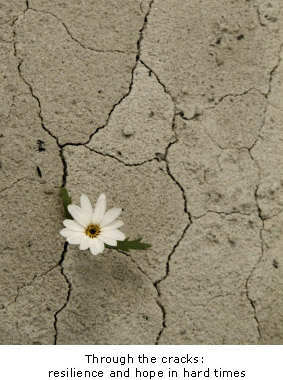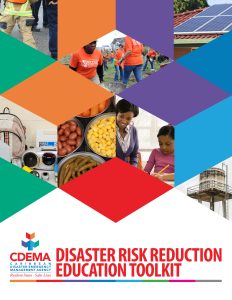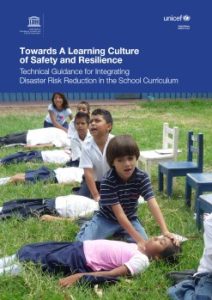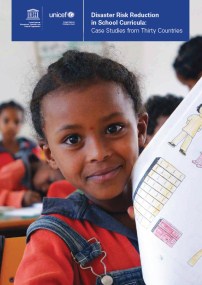Sustainability Frontiers is committed to exploring the theoretical, policy and practical interface between sustainability education, disaster risk reduction education and education enabling resilient responses to threats and emergencies occasioned by fast and slow-onset disasters. Our exploration addresses theoretical, policy and practical dimensions of disaster risk reduction taking on board the exacerbating presence of the climate crisis that is deeply and negatively affecting communities and livelihoods while compounding underlying vulnerabilities and inequalities.
 Climate change predictions from the worldwide scientific community suggest that, should current trajectories continue, in the foreseeable future, everyone will be in emergency. The work the Sustainability Frontiers undertakes anticipates and foreshadows such a future by aligning sustainability education with disaster risk reduction education and resilience building education and by bringing them into mainstream education in both formal and non-formal learning settings.
Climate change predictions from the worldwide scientific community suggest that, should current trajectories continue, in the foreseeable future, everyone will be in emergency. The work the Sustainability Frontiers undertakes anticipates and foreshadows such a future by aligning sustainability education with disaster risk reduction education and resilience building education and by bringing them into mainstream education in both formal and non-formal learning settings.
Sustainability Frontiers works with partner organizations in developing learning strategies for mitigating and preventing disaster and for coping with emergencies and trauma, while helping facilitate the development of locally appropriate curricula and learning and teaching materials that build on indigenous resilience experience and wisdom. Sustainability Frontiers members also work to strengthen the resilience capacities of education systems faced, as they are, with multiple, cascading and mutually reinforcing risks fuelled and exacerbated by climate breakdown.
Projects/Consultancies
- The Geneva EiE Hub Flagship Report on Climate Change and Education in Emergencies (EiE) (2023)
- GPE Building a Framework for Climate-smart Education Systems (2022)
- Climate Change and Education Regional Study, South Asia (2020-2021)
- Review of National Curricula to Integrate Disaster Risk Reduction in The Gambia (2021)
- St. Vincent & The Grenadines Climate Change Mitigation and Adaptation and Disaster Risk Reduction Curriculum Consultancy (2018-2019)
- UNICEF Eastern Caribbean Education in Emergency Consultancy
- UNICEF Pacific School-based Disaster Risk Reduction and Resilience Consultancy (2018-2019)
- Bhutan DRR School Curriculum Review (2018)
- Safer Tomorrow – Disaster Preparedness in Pakistan Project (2018)
- Bhutan and Nepal Case Study Consultancy (2017)
- Bangladesh Primary and Secondary Curriculum Review through DRR and climate change lenses (2016)
- Global Disaster Preparedness Center/Sustainability Frontiers Research Partnership (2016)
- UNICEF Child-Sensitive Disaster Risk Reduction within a Decentralization and Local Governance Context Consultancy (2016)
- Bhutan National Education Sector Disaster Management Plan Consultancy (2015)
- HOPE’87 Tools and Materials for School Based Disaster Risk Management (SBDRM) Consultancy, Pakistan (2015-2016)
- 16-country Caribbean Disaster Emergency Management Agency Research and Development Project (2014)
- Development of Pakistan School Disaster Management Training Manual and Teacher Guide (2014)
- Research Consultancy on Disaster Risk Reduction in School Curricula in South Asian and South East Asian Countries for Plan Sweden (2013-2014)
- Safe School Research in Cambodia, China and Indonesia for Plan International Asia Regional Office (2012-2013)
- UNESCO/UNICEF Integrating Disaster Risk Reduction into the Curriculum Technical Guidance Tool Consultancy (2012)
- Disaster Risk Reduction Education Consultancies for Save the Children Australia, Vanuatu (2012)
- UNICEF/UNESCO Mapping of Global Disaster Risk Reduction Integration into Education Curricula (2011)
Key Publications
- Fumiyo Kagawa and David Selby. (2023). Leveraging Education in Emergencies for Climate Action. No Time to Lose: Commitment to Resilience and Learning Now. Geneva Global Hub for Education in Emergencies: Geneva.
- Fumiyo Kagawa with David Selby. (2022). Quality Education with the Planet in Mind: Towards a Climate-Responsive and Nature-Positive Framework for the Education System of Lower Income Countries. The Global Partnership for Education, Washington DC, Paris, Brussels.
- David Selby & Fumiyo Kagawa. (2014). Disaster Risk Reduction Education Toolkit. CDEMA. St. Michael
- David Selby & Fumiyo Kagawa. (2013). Towards a Learning Culture of Safety and Resilience: Technical Guidance for Integrating Disaster Risk Reduction in the School Curriculum. UNESCO/UNICEF: Paris/New York
- Fumiyo Kagawa & David Selby. (2012) ‘Ready for the Storm: Education for Disaster Risk Reduction and Climate Change Adaptation and Mitigation,’ Journal of Education for Sustainable Development, vol.6, no. 2, 207-17.
- David Selby & Fumiyo Kagawa. (2012). Disaster Risk Reduction in School Curricula: Case Studies from Thirty Countries. UNESCO/UNICEF: Paris/Geneva. [ In Nepali click here. In Portuguese click here. In French click here.]



